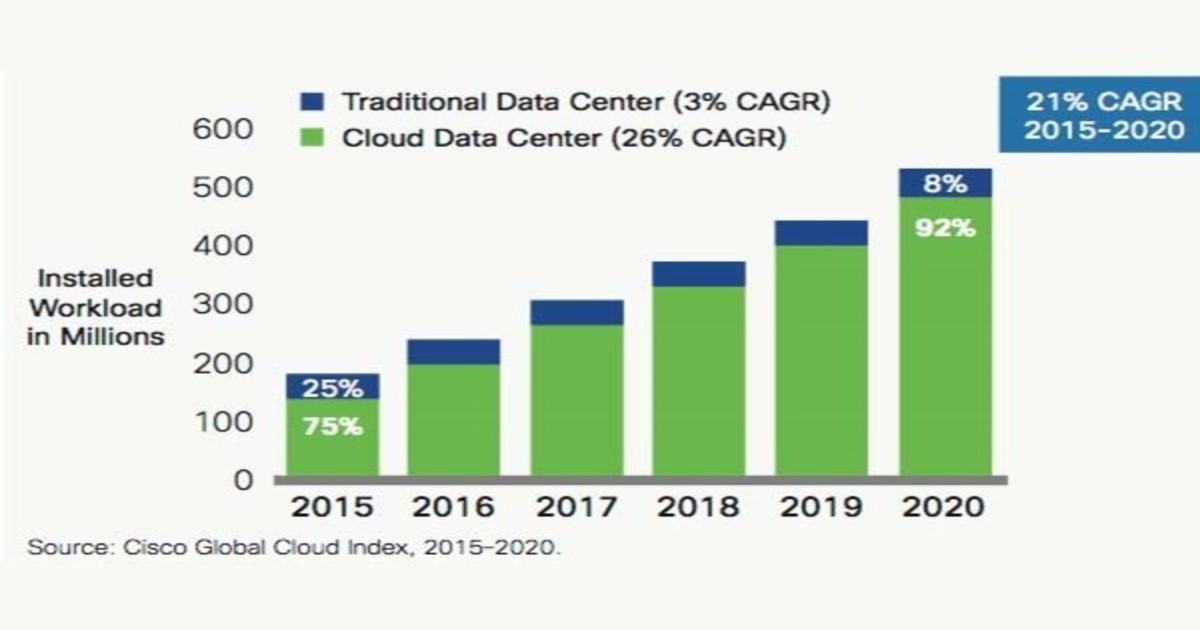
Health Technology, Digital Healthcare
Article | September 7, 2023
Contents
1. Getting Started with LIMS Software
2. Benefits of Incorporating LIMS Software into Lab Management
3. LIMS Software Classification
4. Selecting the Right LIMS Software: A Comparison of Variants
5. How LIMS Software Revolutionized Laboratory Management
6. Future Scope
1. Getting Started with LIMS Software
Laboratory Information Management System (LIMS) software automates laboratory operations, improves productivity, and ensures the accuracy as well as reliability of laboratory data. It can be implemented in clinical laboratories, research & development labs, and environmental testing labs and tailored to meet specific needs. LIMS software seamlessly integrates with other laboratory systems, such as electronic lab notebooks and scientific data management systems.
LIMS class software enables storing and managing all information in one place, improving day-to-day work. Yet, research reveals that still 40% of industry leaders 'had not embarked on applying digital to research and development or quality control labs'.
(Source: Accenture)
2. Benefits of Incorporating LIMS Software into Lab Management
By implementing LIMS software, laboratories can significantly reduce time spent locating samples and records, entering data, and generating reports.
LIMS software also offers additional advantages when integrated into laboratory management, such as
1. Optimizing: LIMS automates laboratory processes, allowing for a paperless environment and increased productivity. It also ensures accurate test results by preventing the use of outdated instruments.
2. Automating: LIMS facilitates the input of essential sample information, including its source, date, time, and location of the collection as well as processing data.
3. Compliant: LIMS helps labs follow FDA regulations by creating an audit trail that tracks all activities, including record creation, modification, and deletion. It also enables electronic signatures to authenticate key activities and keep data secure and traceable.
4. Collaborative: LIMS streamlines inter-laboratory collaboration through the option to share data access. This allows lab technicians from disparate laboratories to be seamlessly assigned to different projects and obtain the required information without disruption.
5. Security: LIMS systems offer various mechanisms for managing user access, such as an in-built user management system with a unique username and password, integration with LDAP or Active Directory for user authentication, and access through an Identity Server.
3. LIMS Software Classification
Laboratory Information Management System software can be classified based on several criteria, including functionality, deployment model, industry focus, and the laboratory's needs.
Here is a list of critical features that can be considered while classifying LIMS software:
1. Functionality: Different LIMS software may have varying functionality, including sample tracking, data management, instrument integration, quality control, workflow management, and reporting.
2. Deployment Model: LIMS software can be deployed on-premises or in the cloud. On-premises deployment means that the software is installed and run on the laboratory's own servers, while cloud-based deployment means that the software is hosted and maintained by a third-party provider.
3. Industry Focus: LIMS software can be designed for specific industries or applications, such as pharmaceutical research, clinical laboratories, food and beverage testing, environmental testing, and more.
4. Open-Source vs. Proprietary: LIMS software can also be classified as either open-source or proprietary. Open-source software is freely available and can be modified by users, while a company owns proprietary software and requires a license to use it.
5. Scalability: The size of the laboratory and the number of users accessing the LIMS software can also be a factor in classification. Some LIMS software may be more scalable, allowing for easy expansion as the laboratory grows.
6. Integration Capabilities: LIMS software can also be classified based on its ability to integrate with other software or instruments. Some LIMS software may be more flexible and have better integration capabilities than others, allowing for seamless data exchange between different systems.
4. Selecting the Right LIMS Software: A Comparison of Variants
While selecting the most appropriate LIMS variant, the wide range of available options can pose a challenge for laboratory decision-makers. To aid in this selection process, a comprehensive comparative analysis of LIMS variants is presented below:
1. Lab managers can adopt an objective approach for evaluating and comparing different LIMS solutions by creating a grading rubric. This involves designing a table with separate columns for each LIMS vendor and rows listing the desired features as well as functionalities. To provide a more comprehensive evaluation, advanced rubrics may include rating each functionality on a particular LIMS using a scale of 1 to 5.
2. Next, it is crucial to review how LIMS solutions are structured and stored. This includes determining whether the solution is on-premise or cloud-based, either as a platform-as-a-service (PaaS) or software-as-a-service (SaaS). For optimal flexibility in the laboratory's computing structure, choosing a vendor that offers LIMS as a comprehensive solution is advantageous.
3. Data access must be controlled by using unique user IDs and passwords. Furthermore, data security standards such as HIPAA compliance and SSL encryption will likely be mandatory across many laboratory industries. It is thus imperative to carefully consider and ensure the security features of any potential LIMS solution.
4. To assess the level of support that can be expected with a particular LIMS, one effective method is to directly inquire with the software vendor about outages, response time, and plans of action to address any glitches preemptively. Managing expectations around the LIMS requires asking about the frequency of LIMS updates, including how often the platform is updated, how updates are announced and deployed, and the expected duration of any update-related outages.
5. While selecting a LIMS solution, laboratories must establish a target go-live date, especially when implementing the system in response to, or preparation for, an audit. Software vendors should provide a deployment and implementation timeline, which can be used to compare with the laboratory's objectives and goals. This helps to ensure that the LIMS solution is implemented in a timely and efficient manner.
5. How LIMS Software Revolutionized Laboratory Management
LIMS software has fundamentally revolutionized the laboratory management system in several ways. Before the advent of LIMS, laboratory operations were often paper-based and highly manual, leading to inefficiencies, errors, and inconsistencies. However, with the implementation of LIMS, laboratories have become more efficient, accurate, and compliant.
LIMS has also improved laboratory productivity, allowing scientists to focus on higher-value tasks like data analysis and interpretation. It has enabled collaboration between different laboratories, facilitating communication and knowledge sharing between scientists, researchers, and analysts, and is also leading to more significant innovation and progress in the field of science and research.
6. Future Scope
The future scope of Laboratory Information Management System software is promising as it continues to evolve and adapt to the changing needs of laboratory management. Potential developments include integrating emerging technologies such as artificial intelligence, machine learning, and robotics, cloud-based solutions for scalability and accessibility, IoT integration for automation and safety, enhanced data analytics for improved decision-making, and mobile applications for on-the-go access. Moreover, with SaaS LIMS, there are no license costs, minimal installation fees, and no need for in-house servers or databanks, resulting in reduced IT maintenance costs for hardware and software.
Read More

Health Technology, Digital Healthcare
Article | July 14, 2023
The COVID-19 virus (C19) pandemic is turning out to be the event of the century. Even World War seems timid in comparison. We are in the 4th month of the virus (in non-China countries) and have gone past the lockdown in many places. Isn’t it time we re-think the approach? What if there is another wave of C19 coming soon? What if C19 is the first of many such events in the future?
Before we get into analysis and solution design, summarizing the C19 quirks:
While a large section of the affected population is asymptomatic, for some it can be lethal
There isn’t clarity on all the ways C19 spreads
It’s known to affect the lungs, heart, and kidneys in patients with weak immunity
It has been hard to identify a definitive pattern of the virus. Some observations in managing the C19 situation are:
With no vaccine in sight, the end of this epidemic looks months or years away
Health care personnel in hospitals need additional protection to treat patients
Lockdowns lead to severe economic hardship and its repeated application can be damaging
Quarantining people has an economic cost, especially in the weaker sections of society
If one takes a step back to re-think about this, we are primarily solving 2 problems:
Minimise deaths: Minimise the death of C19 and non-C19 patients in this period
Maximise economic growth: The GDP output/growth should equal or higher than pre-C19 levels
One needs to achieve the 2 goals in an environment of rising number of C19 cases.
Minimise deaths
An approach that can be applied to achieve this is:
Data driven health care capacity planning
Build a health repository of all the citizens with details like pre-existing diseases, comorbidity, health status, etc. The repository needs to be updated quarterly to account for patient data changes
This health repository data is combined with the C19 profile (disease susceptibility) and/or other seasonal diseases to determine the healthcare capacity (medicines, doctors, etc.) needed
The healthcare capacity deficit/excess needs to be analysed in categories (beds, equipment, medicine, personnel, etc.) and regions (city, state, etc.) and actions taken accordingly
Regular capacity management will ensure patients aren’t deprived of timely treatment. In addition, such planning helps in the equitable distribution of healthcare across regions and optimising health care costs. Healthcare sector is better prepared to scale-up/down their operations
Based on the analysis citizens can be informed about their probability of needing hospitalisation on contracting C19. Citizens with a higher health risk on C19 infection should be personally trained on prevention and tips to manage the disease on occurrence
The diagram below explains the process
Mechanism to increase hospital capacity without cost escalation
Due to the nature of C19, health personnel are prone to infection and their safety is a big issue. There is also a shortage of hospitable beds available. Even non-C19 patients aren’t getting the required treatment because health personnel seek it as a risk. This resulted in, healthcare costs going up and availability reducing.
To mitigate such issues, hospital layouts may need to be altered (as shown in the diagram below). The altered layout improves hospital capacity and availability of health care personnel. It also reduces the need for the arduous C19 protection procedures. Such procedures reduce the patient treatment capacity and puts a toll on hospital management.
Over a period, the number of recovered C19 persons are going to increase significantly. We need to start tapping into their services to reduce the burden on the system. The hospitals need to be divided into 3 zones. The hospital zoning illustration shown below explains how this could be done. In the diagram, patients are shown in green and health care personnel are in light red.
**Assumption: Infected and recovered C19 patients are immune to the disease. This is not clearly established
Better enforcement of social factors
The other reason for high number of infections in countries like India is a glaring disregard in following C19 rules in public places and the laxity in enforcement. Enforcement covers 2 parts, tracking incidents of violation and penalising the behaviour. Government should use modern mechanisms like crowd sourcing to track incidents and ride on the growing public fear to ensure penalty enforcement succeeds. The C19 pandemic has exposed governance limitations in not just following C19 rules, but also in other areas of public safety like road travel, sanitation, dietary habits, etc.
Maximise economic growth
The earlier lockdown has strained the economy. Adequate measures need to be taken to get the economy back on track. Some of the areas that need to be addressed are:
One needs to evaluate the development needs of the country in different categories like growth impetus factors (e.g. building roads, electricity capacity increase), social factors (e.g. waste water treatment plants, health care capacity), and environmental factors (e.g. solar energy generation, EV charging stations). Governments need to accelerate funding in such projects so that that large numbers of unemployed people are hired and trained. Besides giving an immediate boost to the ailing economy such projects have a future payback. The governments should not get bogged down by the huge fiscal deficit such measures can create. Such a mechanism to get money out in the economy is far than better measures like QE (Quantitative Easing) or free money transfer into people’s bank accounts
Certain items like smartphone, internet, masks, etc. have become critical (for work, education, critical government announcements). It’s essential to subsidise or reduce taxes so that these items are affordable and accessible to everyone without a financial impact
The government shouldn’t put too many C19 related controls on service offerings (e.g. shops, schools, restaurants, cabs). Putting many controls increases the cost of the service which neither the seller not buyer is willing or able to pay. Where controls are put, the Govt should bear the costs or reduce taxes or figure out a mechanism so that the cost can be absorbed.
An event like the C19 pandemic is a great opportunity to rationalise development imbalances in the country. Government funding should be channelized more to under-developed regions. This drives growth in regions that need it most. It also prevents excess migration that has resulted in uncontrolled and bad urbanisation that has made C19 management hard (guidelines like social distance are impossible to follow)
Post-C19 lockdown, the business environment (need for sanitizers, masks, home furniture) has changed. To make people employable in new flourishing businesses there could be a need to re-skill people. Such an initiative can be taken up by the public/private sector
The number of C19 infected asymptomatic patients is going to keep increasing. Building an economy around them (existing, recovered C19 patients) may not be a far-fetched idea. E.g. jobs for C19 infected daily wage earners, C19 infected taxi drivers to transport C19 patients, etc.
In the last 100 years, mankind has conquered the destructive aspects of many a disease and natural mishap (hurricanes, floods, etc.). Human lives lost in such events has dramatically dropped over the years and our preparedness has never been this good. Nature seems to have caught up with mankind’s big strides in science and technology. C19 has been hard to reign in with no breakthrough yet. The C19 pandemic is here to stay for the near future. The more we accept this reality and change ourselves to live with it amidst us, the faster we can return to a new normal. A quote from Edward Jenner (inventor of Small Pox) seems apt in the situation – “The deviation of man from the state in which he was originally placed by nature seems to have proved to him a prolific source of diseases”.
Read More

Healthtech Security
Article | November 29, 2023
Over the past twenty-five years most businesses have been revolutionized by the easy availability of cloud and mobile-based computing systems. These technologies have placed power and access into the hands of employees and customers, which in turn has created huge shifts in how transactions get done. Now the companies with the highest market value are both the drivers of and beneficiaries of this transition, notably Apple, Facebook, Amazon and Alphabet (Google), as well as their international rivals like Samsung, Baidu, Tencent and Alibaba. Everyone uses their products every day, and the impact on our lives have been remarkable. Of course, this also impacts how businesses of all types are organized. Underpinning this transformation has been a change from enterprise-specific software to generic cloud-based services—sometimes called SMAC (Social/Sensors/Mobile/Analytics/Cloud). Applications such as data storage, sales management, email and the hardware they ran on were put into enterprises during the 80s and 90s in the client-server era (dominated by Intel and Microsoft). These have now migrated to cloud-based, on-demand services.
Read More

Article | April 21, 2020
While artificial intelligence (AI) offers numerous advantages across a wide range of businesses and applications, an ongoing report spreads out some convincing focuses on the different difficulties and perils of using AI in the social insurance segment. As of late, AI has been progressively consolidated all through the medicinal services space. Machines would now be able to give emotional wellness help by means of a chatbot, screen tolerant wellbeing, and even anticipate heart failure, seizures, or sepsis.
Read More